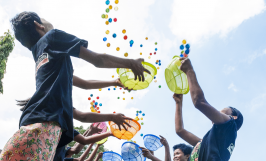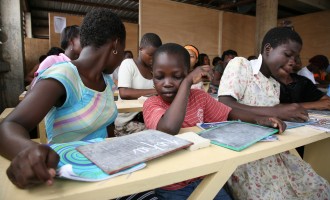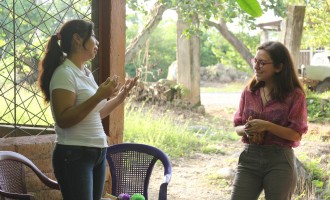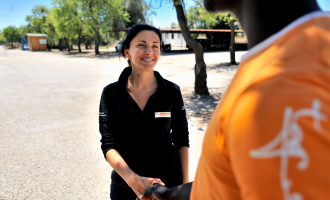Peer-to-peer mentoring for integration in Europe
The challenges

Around 30% of all people migrating to Europe over the past years were children – many of them separated or unaccompanied. In their host countries, children and youth in migration are particularly vulnerable to social exclusion and face considerable challenges in terms of access to education, social inclusion, and subsequently employment.
The response
Through the MINT- Mentoring for Integration of Third Country National Children Affected by Migration project (January 2019-February 2021), Terre des hommes (Foundation) and its partners Ocalenie Foundation, Organization for Aid to Refugees and Slovene Philantropy, empowered both local youth and third-country national children to engage in new integration activities. The project was funded by the European Union’s Asylum, Migration and Integration Fund (2014-2020) and carried out in Romania, Poland, Slovenia and the Czech Republic.
MINT is an innovative and replicable peer-to-peer mentoring programme built on good practices and tested models. Recently arrived children were matched with local youth volunteers who provided them with support, advice and friendship. Acknowledging that overcoming language barriers is a crucial step towards successful integration, children and adults were offered language courses and access to language learning applications. Participating children were also actively involved in the development of child-led advocacy initiatives, which resulted in creative theatrical productions, local events and national advocacy conferences.
Photo ©Slovene Philantropy.
The impact

The peer-to-peer mentoring project empowered young people and helped counter stereotypes about children and youth on the move. Participants were given tools and support to share knowledge, increase their social and emotional skills, and promote integration. As a result of the project:
- 130 children were matched with trained local peer mentors to facilitate integration activities
- 240 children and youth were empowered through child-led awareness and advocacy initiatives
- Over 600 children and adults benefitted from language learning opportunities provided by the project
An important outcome of the MINT project is its Mentoring Methodology Framework, which incorporates learnings from the project and other good practices. This framework proves the MINT project’s great replicability and is a useful resource for any organisation setting up a mentoring programme aimed at enhancing the integration of children on the move.
What do children and young people say about this mentoring programme?
In this video, produced by Slovene Philanthropy, mentees and volunteer mentors talk about why MINT was important for them, about the support they got from their mentors and what in their opinion helps children with life in a new country. See more videos here. (Photo ©Ocalenie).
Gulum’s story

During the final evaluation, Gulum, a mentee from the Czech Republic, said: “I joined the programme because I wanted to have more conversations with youth from Czech. I enjoyed the whole project because it was nicely done for migrated children. Now, I’m not afraid anymore when someone approaches me like on the train. I’m not afraid if other people ask questions and I’m not afraid to ask questions.
Read more promising practices







